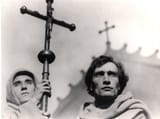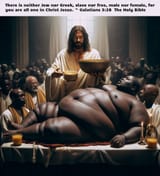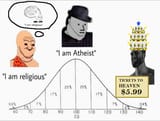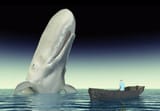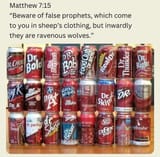>>24696057
>I disagree.
A religion couldn't survive for centuries at the heart of a highly developed culture without it being confirmed in observation and experience. Of course, the point being that you fail to understand what qualitative means. Great literary minds like John Donne, formerly an irreverent worshipper of eros, do not just have midlife religious revelations because they force themselves to conform to dogma. Something other than dogma is required for revelation, real observation is demonstrable, in the lives of many.
>It is clearly not the result of careful, sober observations of the real world.
I don't see how you can say this if you've ever read much Medieval theology. It's an extremely sober and laboriously careful process of deductions. Now, you might concede, it is sometimes sober and careful, but its deductive process is disconnected from the 'real world', to which I respond: what is the 'real world'? It goes without saying that your assertion here is depended on a very specifically qualified definition of 'real world'. If you mean the world as it does not interact with human mind, but defined completely 'objectively' as science would have it, then you are again at the problem of denying any reality to human experience and culture.
>Pick one and be honest about it.
Come on anon, I think you are intelligent enough to understand that that is a false binary, or at least it is very possible to conceive it as a false binary from the religious person's point of view. I think there are many atheists that would agree the two polar opposites you have chosen can only tenuously be considered polar opposites, and that they include only a very small spectrum of religious thought. But to answer your question as best I can, both. Insofar the 'natural world' includes qualities observed, such as beauty, and insofar as Biblical stories believed to be true can also contain obvious morals.
